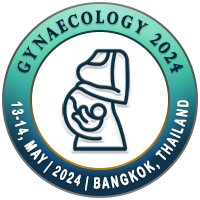
Nsenga Bakinahe
University of Rwanda, RwandaTitle: Knowledge, attitudes, and practices regarding integrated HIV prevention and SRH services among adolescent girls and young women in Rwanda
Abstract
Background: Adolescent girls and young women (AGYW) globally, particularly in Eastern and Southern Africa (ESA) and Rwanda, face significant challenges relating to HIV prevention and sexual and reproductive health (SRH). AGYW account for 26% of new HIV infections in ESA and have limited access to comprehensive SRH services. Additionally, in Rwanda, approximately 65.3% of the population is below 30 years of age, highlighting the vulnerability of AGYW. This study aims to understand the existing knowledge, attitudes, and practices of AGYW regarding integrated HIV prevention and SRH services to develop targeted interventions to address their unique needs. It is crucial to empower AGYW with accurate and comprehensive information, enabling them to make informed decisions and protect their health effectively.
Methodology: This study is cross-sectional research conducted in Nyagatare district, involving 384 adolescent girls and young women aged between 15 and 24. Data collection was carried out using a pre-designed questionnaire. The collected data were analyzed using SPSS software, with descriptive statistics in percentages. For inferential statistics, odds ratios were computed, and a p-value less than 0.05 will be considered statistically significant. Qualitative data were transcribed, initially in Kinyarwanda and then translated into English, preserving the original meaning, and ATLAS-Ti was used to analyze qualitative data.
Results: The majority (97.9%) of respondents had a good level of knowledge, while only a tiny proportion (2.1%) had a poor level of knowledge. Regarding attitudes, slightly more than half (52.2%) of the respondents had a poor level of attitude towards integrated HIV prevention and SRH, while 47.8% had a good level of attitude. In terms of practice, a similar pattern emerges, with 51.4% of respondents having a poor level of practice towards integrated HIV prevention and SRH and 48.6% having a good level of practice. The level of education does not show a significant association with the practice of HIV-integrated services p>0.5
There is no significant association between dropping out from school and the practice of HIV-integrated services p>0.05. The reasons for dropping out from school show a significant association with the level of practice of HIV-integrated services p<0.05. Family status is significantly associated with the level of practice of HIV-integrated services p<0.05.
Conclusion: The findings from these studies collectively emphasize the need for comprehensive education, targeted interventions, and community-based support to achieve better health outcomes regarding HIV prevention and overall sexual and reproductive health among young women. By leveraging these insights, stakeholders can develop tailored interventions that address the specific challenges and needs of young individuals in different regions, ultimately contributing to improved HIV prevention and SRH outcome.
Biography
WILL BE UPDATED SOON

